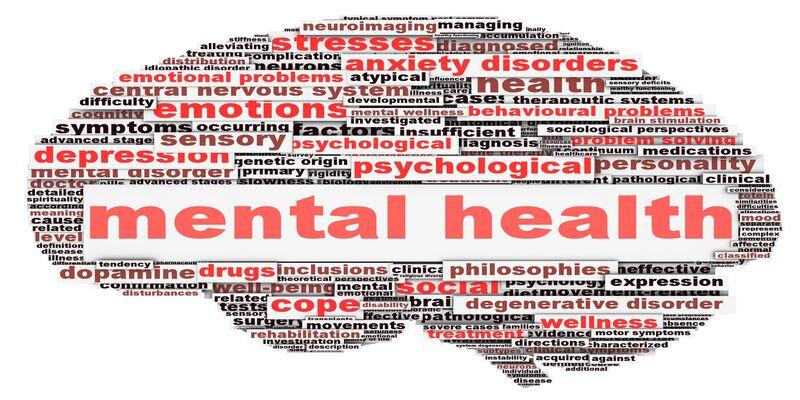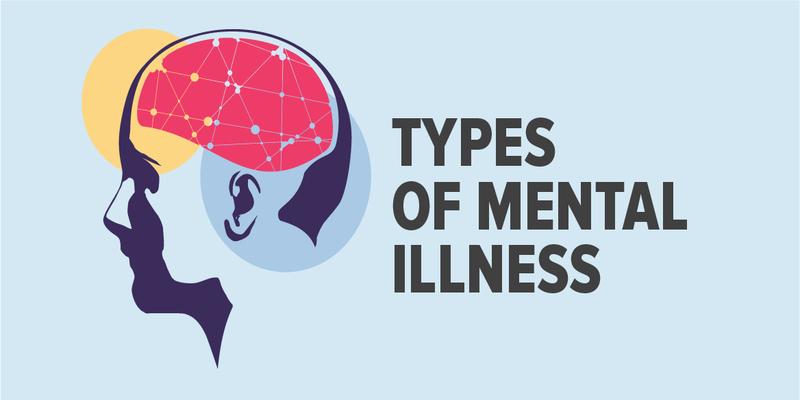The Number One Thing You Shouldn't Forget About Mental Illness
Sep 03, 2024 By Alison Perry
Approximately one in eight people on the planet suffer from a diagnosable mental illness. Mental health issues are very common in all nations.
Age and gender differences exist in the occurrence of certain mental illnesses. Anxiety disorders and depression disorders are the most commonly found in both genders.
Although being very common in the world, is mental health overlooked by people in our society? Well, the answer is yes! Want to know how?
In this article, well talk about the #1 thing to remember about mental illness to spread as much mental health awareness as we can.
So keep reading to know all about it!
What is Mental Health?
Our mental health includes all aspects of our social, psychological, and emotional well-being. It affects our emotions, ideas, and actions.

It also affects our ability to deal with stress, communicate with others, and make informed decisions. For the whole of life, from childhood and adolescence to adulthood, mental health is crucial.
Mental disorders are influenced by a variety of biological, psychological, and environmental factors and are not just a result of willpower or character deficiencies.
Medical doctors consider mental illnesses such as schizophrenia, bipolar disorder, depression, and anxiety disorders to be serious health concerns.
Whats more, mental illness usually starts in childhood; therefore, it is essential to monitor your children for symptoms that they may have a mental issue. When treated early in life, children often recover from these illnesses sooner than adults.
Several individuals experience mental health issues from time to time. However, a mental health concern becomes an illness when persistent signs and symptoms cause regular stress and hinder your capacity to function properly.
Why Mental Health Is Essential For Overall Well-being?
Without any shadow of a doubt, a person's total health depends on both their physical and mental well-being.
For instance, depression increases the chance of developing a number of physical health conditions, particularly long-term conditions like diabetes, heart disease, and stroke.
Parallel to this, chronic health conditions can increase your risk of mental illness.
The Most Important Thing To Know About Mental Health
Millions of individuals worldwide are impacted by the complicated and diverse topic of mental illness, but there is still a lack of understanding and empathy about it in people.
The #1 thing to remember about mental illness is to understand that it is not a choice but a legitimate medical condition that needs support, care, and medical treatment.
Realizing that mental health disorders are serious medical problems encourages a more sympathetic and caring attitude toward persons who are impacted by them and lessens stigma.
It underlines the need to have access to appropriate medical care, therapy, and support networks and encourages people to ask for help without worrying about being judged.
Many early deaths are also linked to mental disorders, specifically suicide, because patients do not seek medical treatment or diagnosis as they still experience feelings of shame and self-blame. This is partially due to the societal stigma associated with mental health concerns.
This misperception could result in people believing that they are to blame for their situation, hence resulting in worse situations
Causes of Mental Illnesses
Although the definitive cause of most mental diseases is unknown, research has revealed that many of these conditions are caused by a mix of biological, psychological, and environmental factors.
Biological Factors
Mental diseases sometimes have a biological connection. Research suggests that brain chemical imbalances, structural abnormalities, and genetic predispositions all play important roles in the development of these diseases.
Psychological Factors
Psychological factors such as trauma, stress, and early life experiences all contribute to the development and advancement of mental diseases. Individuals who have undergone extreme trauma or prolonged stress, for example, may be at a higher risk of developing anxiety or depression.
These psychological elements, together with biological predispositions, form a complicated web of influences that can have an impact on mental health.
Environmental Factors
The environment has a significant impact on mental health. Social factors such as familial relationships, financial status, and community support can all have a substantial impact on a person's mental health.
Adverse surroundings, such as poverty or discrimination, can increase or cause mental health problems. Yet supportive and nurturing surroundings might operate as protective factors, resulting in better mental health outcomes.
This demonstrates that mental health is directly related to environmental factors, strengthening the notion that mental illness is not primarily an internal or individual problem.
Fight The Stigma! Yes, You Can Do It
Stigma is one of the major obstacles to receiving appropriate mental health care. Misunderstandings and negativity about mental illness may foster discrimination and discourage people from getting treatment.

Misconceptions about mental health disorders as a sign of weakness or about people with mental illnesses as dangerous or unreliable are frequently the root causes of stigma.
You can fight the stigma by not treating those who suffer from mental diseases like misfits; try not to call them demeaning names and instead try to be welcoming.
You may combat the stigma associated with mental illness, even if you do not directly know someone who is affected by it.
What Are The Kinds Of Mental Illnesses?
There are numerous sorts of mental illnesses. Some primary categories of mental health issues are:

- Mood disorders (such as depression or bipolar disorder).
- Anxiety disorders.
- Personality disorders.
- Psychotic disorders (which include schizophrenia)
- Eating disorders.
- Trauma-related disorders (including post-traumatic stress disorder).
- Substance use disorders.
The Bottom Line
When it comes to mental illness, acknowledgement of the illness as a genuine health concern is the most important thing to keep in mind.
Compassion for mental health patients serves as a core component for understanding, support, and healing. We can improve the lives of people impacted by mental illness by showing empathy and promoting a society in which mental health receives the same priority and respect as physical health.
Ultimately, empathy is not about being nice, but it is about acknowledging that we are all human and doing everything possible in hopes that no one has to suffer mental illness alone!








